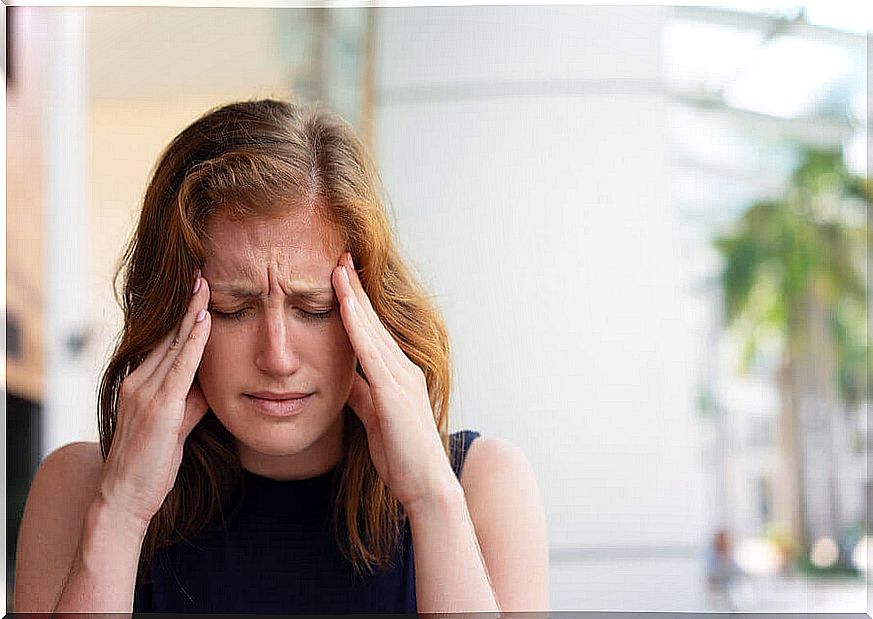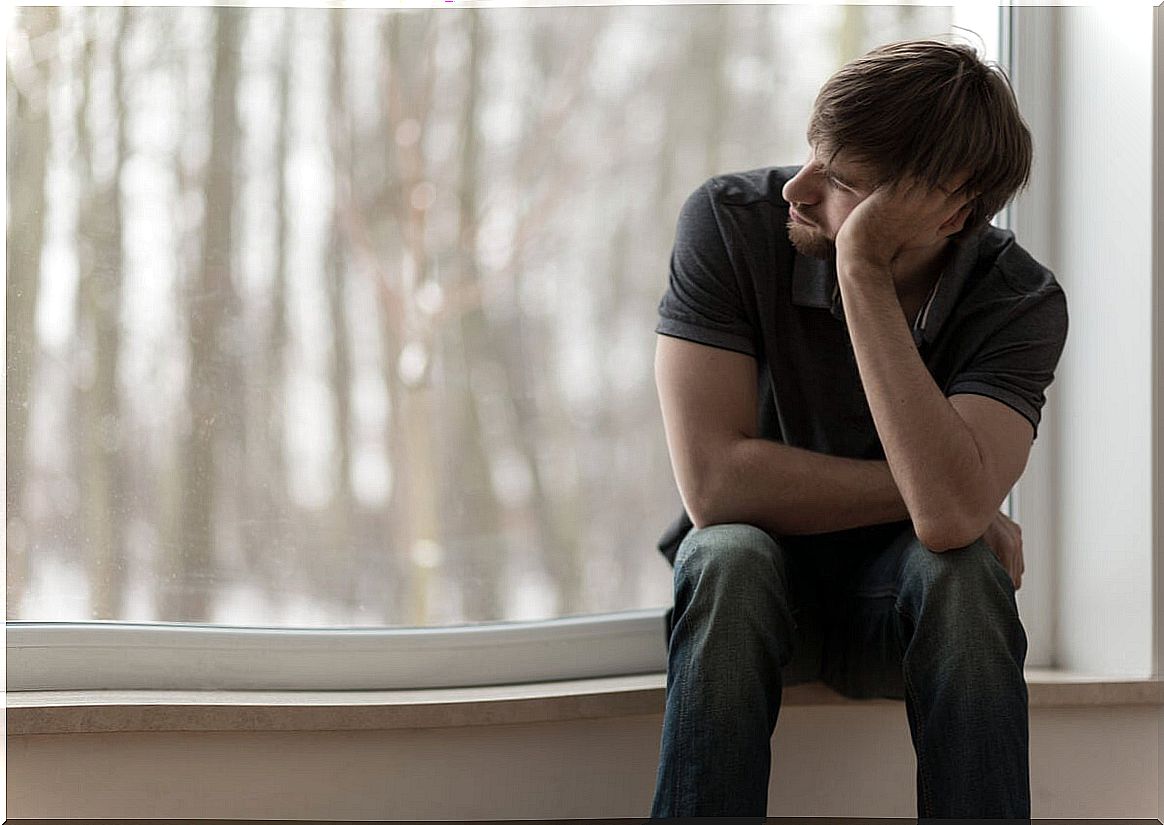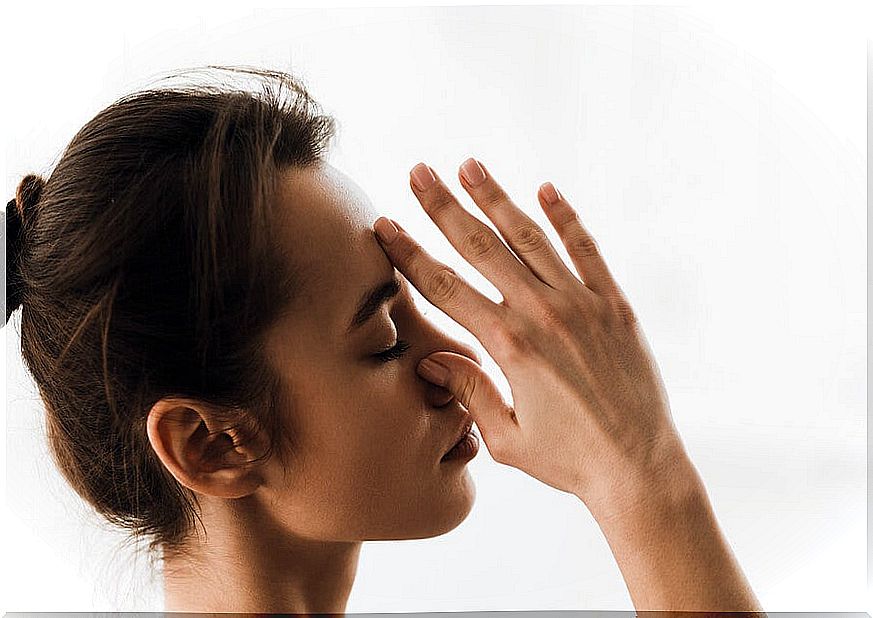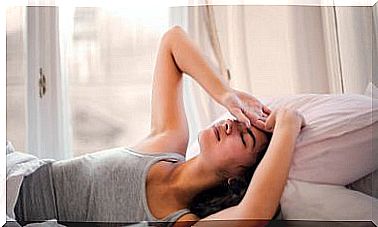4 Techniques To Combat Anxiety
When it comes to fighting anxiety we have different approaches and methodologies. However, not all of us have those mechanisms with which to effectively manage daily pressures and concerns. Often, and almost without knowing how, a small unsolved problem can acquire dimensions that are beyond our hands.
Little by little, without us realizing it too much, anguish settles in us. This is when all kinds of discomfort can appear, such as generalized muscle tension or headaches for apparently no reason … among other psychosomatic disorders.
You need to learn to manage these states of worry so that they do not become a snowball rolling downhill and getting bigger and bigger. Persistent anxiety, unlike that which can appear at very specific moments, can become a problem on a day-to-day basis if it is not treated properly.
Do not leave the annoyance you feel today for tomorrow. Remember that it is not only important that you take care of yourself from a physical point of view (eating healthy, exercising, etc.) but also from a psychological point of view. After all, there can be no true well-being if mind and body are not right together.
If you consider that it is difficult for you to manage, do not forget that you can always consult with good professionals and, at the same time, put into practice these simple tips to combat anxiety.
What is anxiety?

Without going to a too technical definition, we must say that anxiety is a state of restlessness that can appear at any time in life.
As pointed out in research published in 2009 in the journal Psychiatric Clinics of North America , anxiety is associated with a very high variety of neuroendocrine, neurochemical and neuroanatomical disorders. The impact therefore on the brain, body and mind is immense.
These would be some basic ideas that define this recurrent psychological condition:
- When someone is anxious they wait for something (bad) to happen and therefore they are continuously expectant or in a state of alarm.
- Negative and repetitive thoughts are accompanied.
- The person experiences that they have no control over certain aspects of their life.
- Anxiety can manifest itself in different ways, sometimes forming different psychological disorders.
- It has physical symptoms such as rapid heartbeat, sweating, headaches, digestive problems and insomnia. In addition, it is very difficult for him to explain what is happening to him even if he has the ability to detect this over-activation or to know at what moment or situation the anxiety begins to appear.
As explained by psychologists, there are different types of anxiety. However, the two most recurrent are:
Trait anxiety
It appears from an early age (childhood or adolescence) and leads to the formation of temperament or personality.
Basically an individual with trait anxiety reacts without thinking, finds it difficult to relax, and becomes easily overexcited. You don’t know how to live without being anxious, as this feeling has been a great companion for a long time.
State anxiety

It develops due to a specific fact or event in a person who has never been nervous before (or not to the point of considering it a problem).
A group of researchers from the University of California, Los Angeles carried out an investigation on the subject. They found that it is possible that anxiety appears because no other psychological tool is available to solve the problem.
It could be said then that it is an exceptional response and not a rule. Both types of anxiety can exist in the same person. How? If someone is anxious “by nature” but, due to certain things that happen to him, that feeling increases or cannot be controlled as one would like.
How to combat anxiety?
There are many people who want to treat their anxiety episodes naturally, that is, without using drugs prescribed by a psychiatrist and that can cause dependence (and an increasing prescription to achieve results).
The good news is that there are interesting techniques. However, let us always remember that we must always follow medical advice. There are certain psychological disorders and conditions where a pharmacological approach is necessary.
In cases of moderate anxiety or that does not affect daily life, we can make use of natural strategies and advice. These tips could be of help (although in no case they replace the indications of a psychologist or psychiatrist).
1. To combat anxiety: first understand the mechanism
It is necessary to know, in the first instance, that anxiety is an unconscious response to survive what the mind considers dangerous.
Body reactions are also “launched” from the brain to help us get out of the impending situation. In these cases, detecting symptoms as soon as they begin to appear could help combat anxiety.
2. Don’t pressure yourself: slow down
One of the most important characteristics of anxiety is that it causes us to constantly act (and think) in a hurry.
Anxious people may not be able to stand or stay still for more than a few seconds. You also likely want to do many tasks at the same time.
Cooking dinner, texting friends, checking out the kids’ homework, and doing laundry are just a few examples.
In the office the number of windows open on the computer, the hundreds of activities on the agenda (for the same schedule) and accepting various tasks is another of the signs of an anxiousness.
Decreasing the constant hustle and bustle will help signal your brain to pause.
So do not hesitate, change habits, slow down, start walking slower, prioritize yourself, take 5 minutes to rest, take a nap and not overload yourself with obligations, it will in turn help reduce stress and combat anxiety. .
3. Breathe

When “breathing” is recommended, it is not understood much, since we assume that it is an unconscious or mechanical activity. However, we are referring to a type of breathing that offers us more advantages than incorporating oxygen into the body.
Breathing slowly and deeply helps us relax and take control of any situation.
If we are anxious, the best we can do at that moment is to close our eyes and breathe as slowly as possible, thinking only about how the lungs fill with air. You will balance your mind and regain energy to continue with your tasks.
Meditation can also help you, an ancient practice that calms us down and can be very useful especially for those of us who live in big cities.
Meditating is more than sitting in the lotus position and closing your eyes. It is a path to achieve spiritual growth and become better people. It is said that 30 to 40 minutes a day is enough to reduce stress and anxiety.
As if that were not enough, there are various relaxation exercises indicated for the anxious. Whatever technique you choose or learn will be beneficial to you.
4. To combat anxiety: change the perspective of problems
When you have an episode of anxiety, you may not (yet) have the ability to analyze what is happening to you. One of the strategies that can help you combat anxiety is to modify the angle or point of view of the cause. This means that instead of being carried away by feelings or reactions, pause and analyze the event from a more rational point of view.
For example, you may think that it is a problem outside of you. This way you will have a more objective opinion. And you will find that you don’t need to be anxious!
To conclude, do not hesitate to initiate changes in your day to day. Fighting anxiety requires a genuine commitment to ourselves. However, do not hesitate to seek professional help in case you perceive that you are losing control and your quality of life is reducing. Your well-being is a priority.









